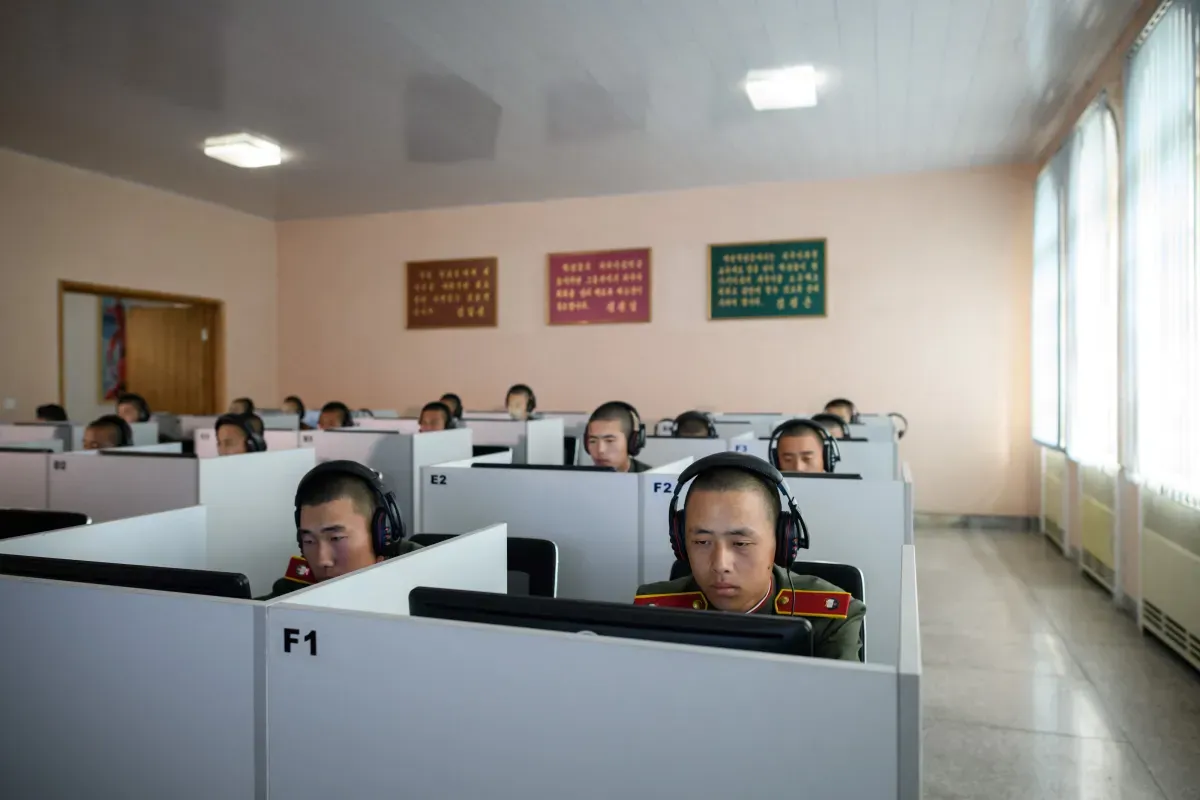How the US Cracked Down on North Korean Remote IT Workers
In June 2025, the U.S. government exposed and dismantled a covert operation involving north korean remote it workers who infiltrated American tech companies to secretly raise millions for the North Korean regime. This high-stakes cybercrime ring not only funneled money to fund nuclear weapons but also stole sensitive data and laundered cryptocurrency through fake identities and shell companies. The crackdown highlights a growing national security threat—foreign operatives blending into the remote workforce to exploit trust, technology, and global connectivity. Here's a breakdown of how this scheme worked, the consequences, and what it means for the future of remote hiring and cybersecurity.
Image Credits:ED JONES/AFP / Getty Images
North Korean Remote IT Workers Posed as US Tech Professionals
The Department of Justice (DOJ) revealed that north korean remote it workers disguised themselves as legitimate U.S.-based freelancers, landing remote jobs at more than 100 American companies between 2021 and 2024. By impersonating over 80 American citizens—sometimes using stolen or purchased identities—they gained access to corporate systems, contracts, and financial data.
To conceal their real identities and locations, these operatives used elaborate setups such as laptop farms based in the United States and hardware tools like keyboard-video-mouse (KVM) switches. These devices allowed North Korean workers to control machines in the U.S. remotely while avoiding detection. At the center of the operation was Zhenxing “Danny” Wang, a U.S. national based in New Jersey, who now faces charges including wire fraud, identity theft, and money laundering. Along with Wang, eight others—six Chinese nationals and two Taiwanese citizens—were indicted for their roles in the conspiracy.
The Cybercrime Operation’s Scope and Financial Impact
According to the DOJ, this fraud ring generated over $5 million in revenue for the North Korean regime. The damages to U.S. businesses exceeded $3 million, factoring in legal fees, incident response costs, and security remediation following unauthorized access. The group operated with alarming sophistication—creating shell companies that appeared to be legitimate U.S. businesses. These shells were used not only to help the operatives get hired more easily but also to launder funds and circumvent international sanctions.
The long-term objective wasn’t limited to making money. U.S. officials believe the operatives were also harvesting sensitive company data and intellectual property. These tactics align with North Korea's broader strategy of using cybercrime and foreign workforce infiltration to generate revenue for its nuclear weapons program—dodging conventional financial restrictions imposed by global sanctions.
How the US Government Responded—and What It Means Going Forward
The coordinated takedown of this network signals a renewed effort by U.S. law enforcement to confront cyber-enabled threats from foreign adversaries. As stated by Leah B. Foley, U.S. Attorney for the District of Massachusetts, thousands of north korean cyber operatives have been trained to blend into the global digital workforce, posing an ongoing threat to national security and the tech industry.
The arrests and indictments serve as a wake-up call for employers. In a post-pandemic era where remote work has become the norm, verifying the identity and origin of remote employees is more critical than ever. Companies must implement stricter background checks, use location verification tools, and adopt zero-trust cybersecurity frameworks. Governments, too, will need to collaborate across borders and sectors to tackle such sophisticated operations—especially as generative AI and advanced proxies make it easier to fake credentials and digital presence.
Final Thoughts on the North Korean Remote IT Worker Operation
The exposure of this covert network underscores how vulnerable the modern workforce has become in the digital age. What initially looked like a cost-effective, remote hiring practice turned out to be a pipeline for espionage, data theft, and state-sponsored terrorism. As this case shows, north korean remote it workers are not just freelancing—they are part of a broader national strategy to undermine security and bypass sanctions.
For tech companies, startups, and government agencies, this operation is a stark reminder: cybersecurity is no longer just about firewalls and antivirus software. It’s about who you hire, how you verify them, and the digital trails they leave behind. As the DOJ continues to investigate and dismantle similar networks, it’s clear that vigilance, transparency, and proactive policy will define the future of safe, secure remote work.


